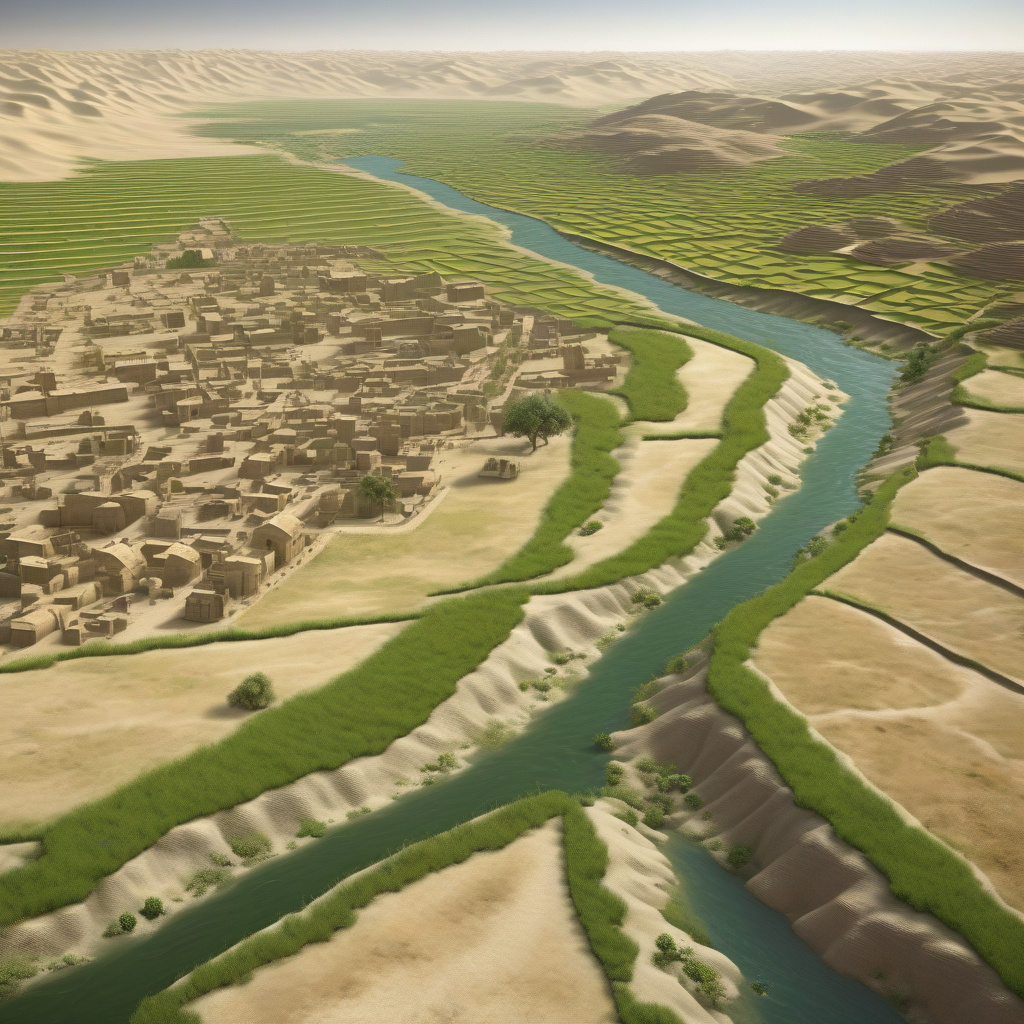Tidal Irrigation: The Ancient Catalyst for Agriculture and Urbanization in Mesopotamia
A new study investigated the landscape of Sumer to determine the conditions that allowed the flourishing of one of the world’s first civilizations. The research shed light on how tidal irrigation played a pivotal role in jump-starting agriculture and urbanization in ancient Mesopotamia.
Mesopotamia, often referred to as the cradle of civilization, was home to the Sumerians, who thrived in the fertile lands between the Tigris and Euphrates rivers around 5000 years ago. The key to their success lay in their innovative use of tidal irrigation systems. These systems were designed to harness the natural ebb and flow of the rivers, allowing for the controlled distribution of water to crops in a region where rainfall was scarce.
By strategically channeling the waters of the rivers to flood their fields, the Sumerians were able to transform arid landscapes into bountiful farmland. This not only enabled them to grow a surplus of crops but also freed up manpower from constant irrigation, leading to the rise of specialized labor and the development of urban centers.
As agriculture flourished, so did the Sumerian cities. The surplus food produced through tidal irrigation allowed for the growth of dense populations in urban areas. This laid the foundation for the first complex societies in human history, with cities like Uruk and Ur becoming centers of trade, culture, and governance.
The success of tidal irrigation in Mesopotamia serves as a testament to the ingenuity and resourcefulness of ancient civilizations. It highlights the importance of sustainable water management practices in supporting the growth of communities and shaping the course of human history.
Furthermore, the legacy of tidal irrigation in Mesopotamia can still be seen today in modern agricultural practices. Techniques such as flood irrigation and canal systems owe their origins to the innovative methods developed by the Sumerians thousands of years ago.
In conclusion, the study of tidal irrigation in ancient Mesopotamia provides valuable insights into how early societies overcame environmental challenges to establish thriving civilizations. By harnessing the power of nature, the Sumerians were able to lay the groundwork for the development of agriculture, urbanization, and complex societies. Their legacy continues to inspire us to this day as we grapple with issues of sustainability and resource management in our ever-changing world.
Tidal irrigation, Mesopotamia, agriculture, urbanization, Sumerians












